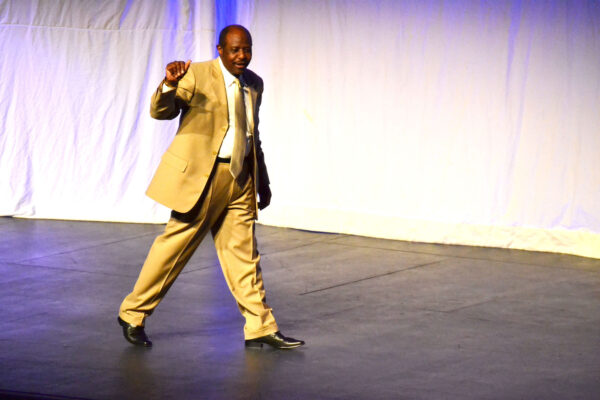

Paul Rusesabagina spoke at the Globe-News Center for the Performing Arts Tuesday as part of the Distinguished Lecture series.
|By Amanda Castro-Crist, Perla Arellano, Bailie Myers|
Community members and Amarillo College students and employees gathered at the Globe-News Center for the Performing Arts for the 2014 Distinguished Lecture Series Tuesday night.
The keynote speaker was Paul Rusesabagina, the humanitarian who is portrayed in the 2004 film, Hotel Rwanda. He saved the lives of more than 1,200 Tutsi and Hutu refugees by sheltering them for two months in the hotel he managed during the 1994 Rwandan genocide.
Rusesabagina spoke of the events leading to the genocide and the steps he took to shelter friends, family members, neighbors and other refugees while even more were killed just a short distance from their sanctuary.
“I had orphans; I had elite intellectuals, I had elite politicians, I had the elite business people,” he said.
More than 800,000 Rwandans were killed in the genocide, something Rusesabagina blames on the desire to rule one another.
“We kill each other for power,” he said.
One of the things that kept the people in the hotel safe was the contacts in other parts of the world he and the refugees reached out to in their moment of need.
“The best and the worst weapon in a human being is not a missile, is not a cannon, but a word,” said Rusesabagina. “I had created a team of people who were sometimes helping me according to their capabilities.”
Rusesabagina spoke of the differences in Rwanda then and now: not much has changed; people still are dying.
“The music we dance to is more or less the same,” he said.
Still, he has managed to keep in touch with some of the refugees.
“We got to know each other, and we have become close,” Rusesabagina said.
Many of those in the audience said they saw the movie before attending the lecture.
“It was completely and utterly depressing,” said Shelby Koontz, a mass communication major and a Student Government Association member. “We live in such an evolved culture; we aren’t used to this.”
Others said the lecture served as an awakening.
“We are so comfortable in our own little world,” said community member Carmen Torres. “We forget that there are real tragedies in the world.”

Leave a Reply